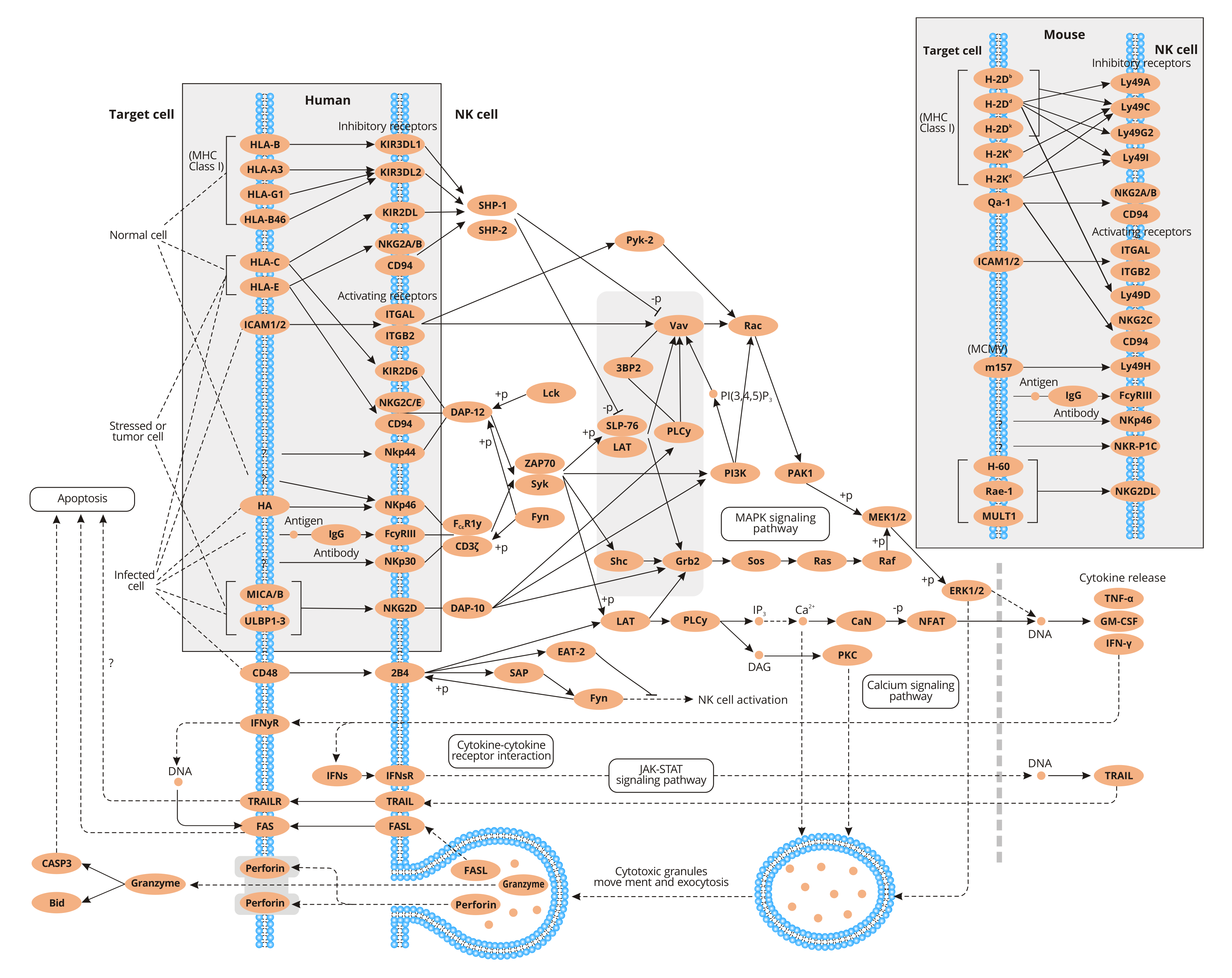
What Are Natural Killer Cells?
Natural killer (NK) cells are important immune cells of the body. NK cells are not only related to anti-tumor, anti-viral infection, and immune regulation, but also participate in hypersensitivity and autoimmune diseases in some cases in which they identify target cells and killing mediators.
What Is Natural Killer Cell-mediated Cytotoxicity?
Cellular cytotoxicity is defined as the ability to kill other cells. It is an important effector mechanism of the immune system to fight viral infections and cancer. NK cells are one of the major mediators of cytotoxicity. NK cell-mediated cytotoxicity refers to the direct killing of viruses, tumor cells, and other foreign substances by NK cells.
The Function of Natural Killer Cell-mediated Cytotoxicity
Cytotoxicity mediated by NK cells plays an important role in the body's anti-viral infection and immune surveillance including innate immunity and adaptive immunity.
The Mechanism of Natural Killer Cell-mediated Cytotoxicity
NK cells exert cytotoxicity through natural killing and ADCC (antibody-dependent cell-mediated cytotoxicity).
Natural Killing
The recognition and killing of NK cells are mainly mediated through the interaction and balance between two receptors on the membrane surface, namely activating receptors (IL-15R, IL-2R, and IL-21R) and inhibitory receptors (KIR and CD94/NKG2A). Although NK cells do not express classical antigen receptors of the immunoglobulin gene family, such as the antibodies produced by B cells or the T cell receptor expressed by T cells, they are equipped with various receptors whose engagement allows them to discriminate between target and nontarget cells. Activation of NK is closely related to major histocompatibility complex (MHC) class I molecules secreted by target cells. The MHC class I molecules are recognized by NK cell inhibitory receptors and the ligation of these receptors inhibits the activation of NK cells. When the cells are infected by viruses or transformed, their MHC I molecules express low or abnormally. Low or abnormal expression of MHC I molecules removes the inhibition signal, leading to the activation of NK cells and then exerting a killing effect. Therefore, NK cells can avoid healthy cells expressing their own MHC class I molecules and cells with the low stress-induced state, that is, NK cells can selectively kill diseased target cells.
ADCC Effect
NK cells can also recognize cells coated with antibodies through the Fc gamma R III cell surface receptors, exerting ADCC action and secreting cytokines. Cytokines such as IFN-gamma, TNF, and IL-2 can effectively promote NK cells to express the low-affinity Fc receptor (Fc gamma R III) and enhance its ADCC effect. Under the action of the high concentration of IL-2, NK cells can be transformed into LAK, which greatly enhances its non-specific anti-tumor effect and is used for passive immunotherapy. After activation, NK cells induce target cell death through Ca2+-dependent granule exocytosis and release of FasL (Fas ligand) molecules and membrane-bound or secreted cytokines (e.g. TNF-α). This process is also known as ADCC.





